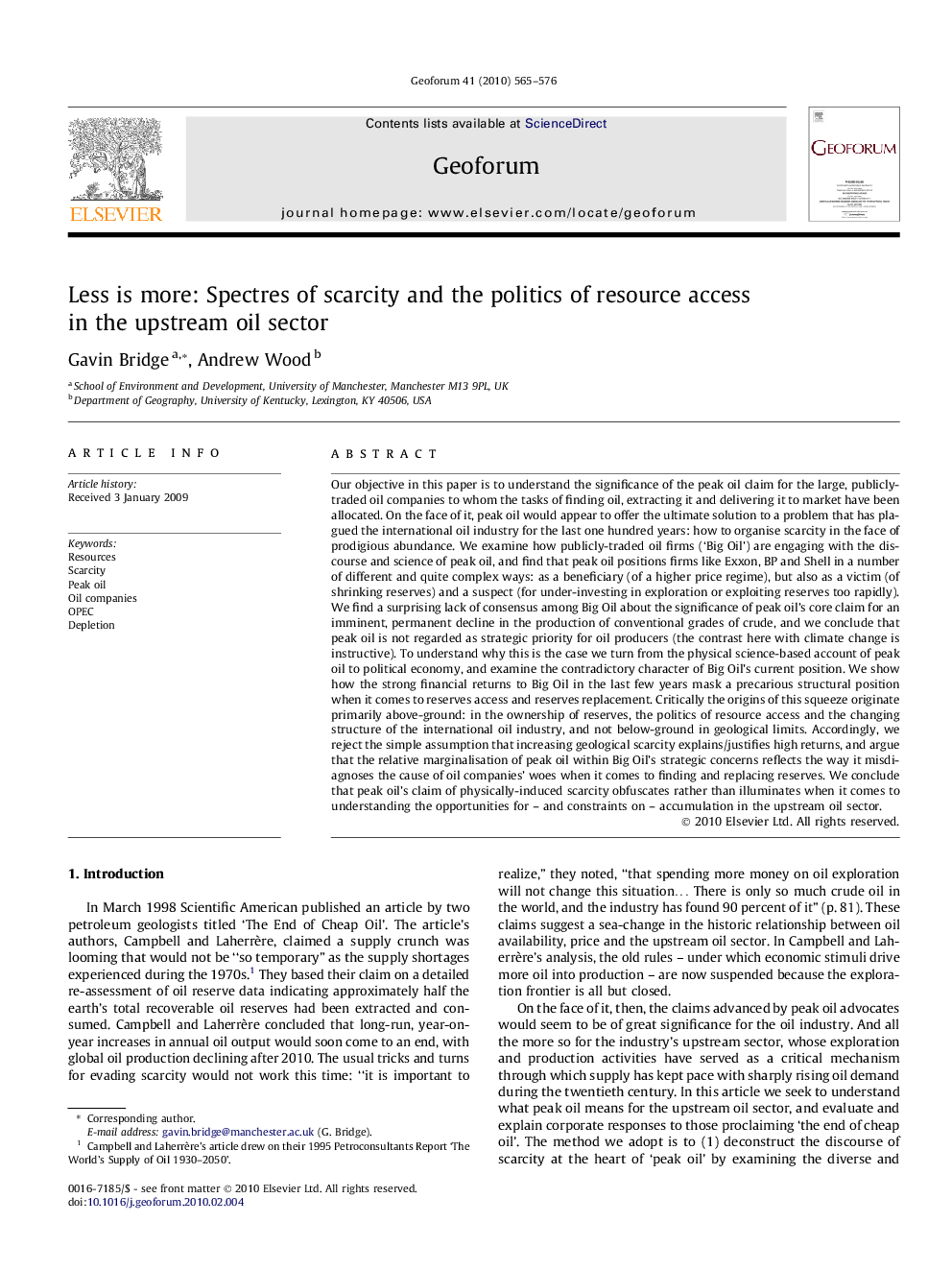| کد مقاله | کد نشریه | سال انتشار | مقاله انگلیسی | نسخه تمام متن |
|---|---|---|---|---|
| 5074575 | 1373705 | 2010 | 12 صفحه PDF | دانلود رایگان |
عنوان انگلیسی مقاله ISI
Less is more: Spectres of scarcity and the politics of resource access in the upstream oil sector
دانلود مقاله + سفارش ترجمه
دانلود مقاله ISI انگلیسی
رایگان برای ایرانیان
کلمات کلیدی
موضوعات مرتبط
علوم انسانی و اجتماعی
اقتصاد، اقتصادسنجی و امور مالی
اقتصاد و اقتصادسنجی
پیش نمایش صفحه اول مقاله

چکیده انگلیسی
Our objective in this paper is to understand the significance of the peak oil claim for the large, publicly-traded oil companies to whom the tasks of finding oil, extracting it and delivering it to market have been allocated. On the face of it, peak oil would appear to offer the ultimate solution to a problem that has plagued the international oil industry for the last one hundred years: how to organise scarcity in the face of prodigious abundance. We examine how publicly-traded oil firms ('Big Oil') are engaging with the discourse and science of peak oil, and find that peak oil positions firms like Exxon, BP and Shell in a number of different and quite complex ways: as a beneficiary (of a higher price regime), but also as a victim (of shrinking reserves) and a suspect (for under-investing in exploration or exploiting reserves too rapidly). We find a surprising lack of consensus among Big Oil about the significance of peak oil's core claim for an imminent, permanent decline in the production of conventional grades of crude, and we conclude that peak oil is not regarded as strategic priority for oil producers (the contrast here with climate change is instructive). To understand why this is the case we turn from the physical science-based account of peak oil to political economy, and examine the contradictory character of Big Oil's current position. We show how the strong financial returns to Big Oil in the last few years mask a precarious structural position when it comes to reserves access and reserves replacement. Critically the origins of this squeeze originate primarily above-ground: in the ownership of reserves, the politics of resource access and the changing structure of the international oil industry, and not below-ground in geological limits. Accordingly, we reject the simple assumption that increasing geological scarcity explains/justifies high returns, and argue that the relative marginalisation of peak oil within Big Oil's strategic concerns reflects the way it misdiagnoses the cause of oil companies' woes when it comes to finding and replacing reserves. We conclude that peak oil's claim of physically-induced scarcity obfuscates rather than illuminates when it comes to understanding the opportunities for - and constraints on - accumulation in the upstream oil sector.
ناشر
Database: Elsevier - ScienceDirect (ساینس دایرکت)
Journal: Geoforum - Volume 41, Issue 4, July 2010, Pages 565-576
Journal: Geoforum - Volume 41, Issue 4, July 2010, Pages 565-576
نویسندگان
Gavin Bridge, Andrew Wood,